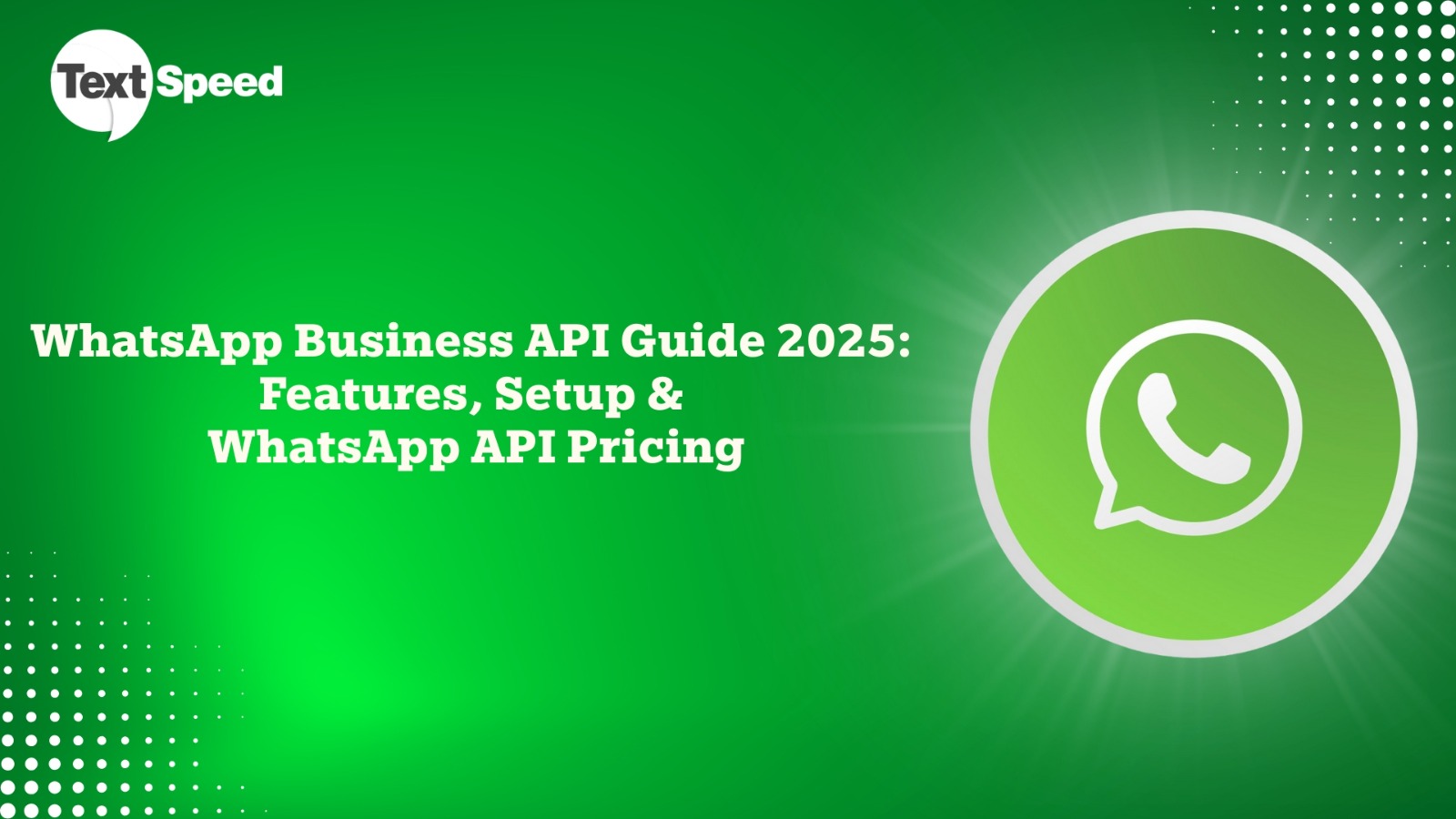Introduction
In today’s digitally connected world, businesses are constantly seeking smarter, faster, and more effective ways to communicate with their customers. The WhatsApp Business API has emerged as a game-changing tool, especially for medium to large enterprises looking to automate, scale, and personalize customer interactions. As we step into 2025, understanding the WhatsApp API pricing, key features, setup process, and best practices becomes essential for businesses aiming to maximize ROI through conversational commerce.
1. What is WhatsApp Business API?
WhatsApp Business API is designed to help companies integrate WhatsApp into their customer engagement platforms. Unlike the free WhatsApp Business App, the API version allows businesses to:
-
Send automated messages.
-
Use chatbots.
-
Integrate with CRM systems.
-
Enable multi-agent customer support.
-
Maintain secure, end-to-end encrypted communications.
With over 2 billion users globally, WhatsApp offers a scalable platform for real-time communication, updates, promotions, and support — making it a must-have for any business in 2025.
2. Why Choose WhatsApp Business API in 2025?
The modern customer demands fast, reliable, and personalized service. WhatsApp Business API caters to this demand by offering:
-
High open rates: WhatsApp messages have a 98% open rate.
-
Real-time responses: Through automation and chatbot support.
-
Global reach: Connect with audiences worldwide.
-
Secure communication: End-to-end encryption ensures customer data privacy.
These capabilities make WhatsApp Business API a cornerstone for businesses looking to improve customer experience and boost retention.
3. WhatsApp API Pricing in 2025
Understanding WhatsApp API pricing is crucial for businesses to plan their communication budget effectively. In 2025, Meta (WhatsApp's parent company) follows a conversation-based pricing model. Here’s what that means:
Conversation Categories:
WhatsApp divides conversations into four types:
- Utility conversations (e.g., order confirmations).
- Authentication conversations (e.g., OTPs).
- Marketing conversations (e.g., offers, reminders).
- Service conversations (customer-initiated inquiries).
Each conversation is charged differently depending on:
-
Region/country.
-
Type of message.
-
Volume of messages sent.
Pricing Factors:
-
Businesses are charged per 24-hour conversation window.
-
First 1,000 user-initiated conversations per month are free.
-
Costs vary by market — India typically has one of the most competitive rates.
For businesses comparing solutions, choosing a reliable WhatsApp API provider that offers transparent WhatsApp API pricing and added value like automation, analytics, and support is key.
4. How to Set Up WhatsApp Business API
Setting up the API requires a structured approach. Here’s a simplified setup process:
Step 1: Choose a BSP (Business Solution Provider)
To access the API, businesses must partner with a BSP such as Twilio, 360dialog, or Textspeed — a trusted name in WhatsApp automation.
Step 2: Verify Your Business
-
Register your business with Meta Business Manager.
-
Provide documentation for business verification.
-
Set up a phone number exclusively for WhatsApp API use.
Step 3: Configure Your WhatsApp Profile
-
Add business name, description, logo, email, and website.
-
Set up messaging templates (approved by Meta).
Step 4: Integration & Launch
-
Connect the API to your CRM or chatbot platform.
-
Start sending messages and automate workflows.
-
Track performance with real-time analytics.
5. Key Features to Leverage in 2025
WhatsApp Business API is evolving. Here are the standout features available in 2025:
-
AI-Powered Chatbots: Automate responses, qualify leads, and handle FAQs.
-
Rich Media Messaging: Send images, videos, documents, and interactive buttons.
-
End-to-End Encryption: Ensure customer privacy and data compliance.
-
Multi-Agent Support: Enable teams to manage customer queries simultaneously.
-
Quick Replies & Templates: Reduce response time and standardize messaging.
6. Best Practices for Maximizing ROI
To fully benefit from the WhatsApp Business API, consider these proven strategies:
Focus on Value-Driven Messaging
Send messages that offer value — such as order updates, appointment reminders, and special discounts. Avoid spammy or overly promotional content.
Use Personalization
Use customer data to personalize messages. Address users by name and send relevant content based on past interactions.
Respect Opt-In Rules
Ensure you have customer consent before messaging. This not only aligns with WhatsApp’s policies but also builds trust.
Monitor Performance
Track key metrics like response time, conversation costs, customer satisfaction, and conversion rates to optimize your strategy.
Choose a Transparent BSP
Select a Bulk WhatsApp sender or API provider that offers clear documentation, onboarding support, and fair WhatsApp API pricing.
7. Industries Using WhatsApp API in 2025
Multiple sectors are actively leveraging WhatsApp API, including:
-
E-commerce: For order updates and product inquiries.
-
Healthcare: For appointment confirmations and follow-ups.
-
Travel & Hospitality: For booking confirmations and itinerary updates.
-
Education: For student engagement and class reminders.
-
Fintech: For payment confirmations and customer support.
Conclusion
The WhatsApp Business API in 2025 continues to be a powerful tool for businesses aiming to engage customers effectively, automate communication, and drive conversions. With advanced features, seamless integration, and scalable messaging, it’s no surprise that more companies are adopting it as their primary customer communication channel.
By understanding the platform, planning according to WhatsApp API pricing, and applying best practices, businesses can harness its full potential while delivering a superior customer experience. Now is the time to invest in this technology and stay ahead in the competitive digital ecosystem.


